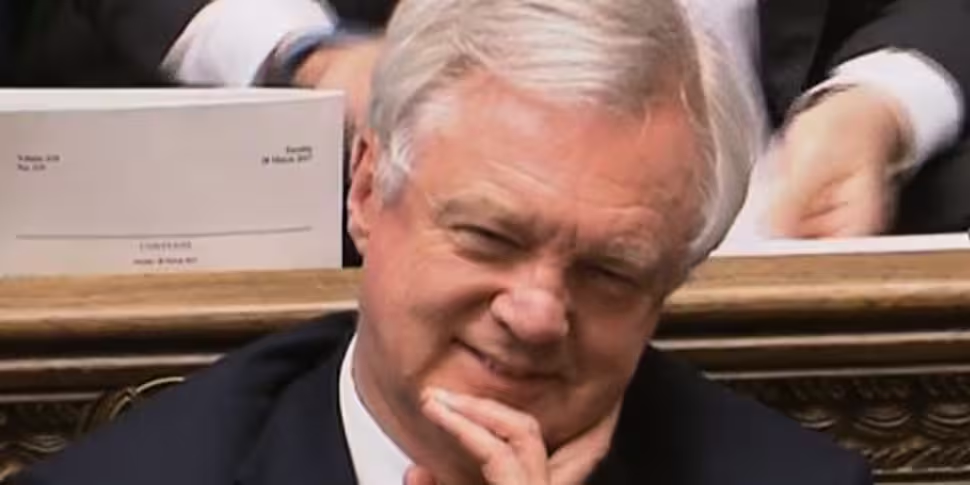Britain’s Brexit Secretary has denied that Prime Minister Theresa May is attempting to use security as a “bargaining chip” to secure a favourable exit deal.
However, David Davis warned that if a deal cannot be reached it will not be good for either side.
Mr Davis pointed to Mrs May's record as one of the longest-serving home secretaries in modern British history, adding that she took the issue "very, very seriously."
He said: "We are going to have - going through this process - lots of times where we say 'this is a good outcome, this is a bad outcome,'" he said.
A line mentioning security arrangements in Mrs May’s six page letter triggering the Brexit process has been cause for considerable concern in Europe.
The line reads: "in security terms a failure to reach agreement would mean our co-operation in the fight against crime and terrorism would be weakened."
The line has been taken as a threat that Britain may withdraw its security and intelligence assets if it fails to secure a preferential deal.
Unacceptable
This afternoon, the EU Parliament’s chief Brexit negotiator warned that Britain cannot "abuse" the security of citizens to get a favourable deal.

European Parliament coordinator for Brexit Guy Verhofstadt at a press conference following the triggering of Article 50, 29-03-2017. Image: Wiktor Dabkowski/DPA/PA Images
Guy Verhofstadt said the Article 50 letter was "very constructive generally" but said the security "threat" was unacceptable.
"A big mistake that we could make from both sides is to start with launching threats to each other,” he said.
"I find the letter of Mrs May very constructive, generally, but there is also one threat in it, in saying 'look, we want also to co-operate with you on security issues in our common fight against terrorism but you have to give us a good deal on trade and economy.’”
"It doesn't work like that - you cannot use, or abuse, I should say, the security of citizens to have then a good deal on something else."
No simultaneous negotiation
The former Belgian Prime Minister went on to say that the UK was being "very naive" to think that both an exit and a new trade deal can be conducted in the timetable available.
"You need to do the withdrawal agreement and you have to have an agreement on what I should call the 'general terms' of your future relationship,” he said.
"Not on the detail, not on the content - that is impossible in 14-15 months to do so.
“We need the whole transition period of two, three, four years to fill in the content of this new association agreement for the future."
He backed the German Chancellor Angela Merkel, who said on Wednesday that the divorce process must be concluded before any new trade deals can be negotiated.
The French President Francois Hollande also warned that the negotiations could not be held simultaneously.
No Brexit punishment
Mr Verhofstadt said the EU was not in the mood to "punish or take revenge" on Britain - but he warned the 27 remaining nations could not allow the UK to be better off outside the bloc.
"We are tough on one issue as the European Parliament, which is that we can never accept that you have a status outside the European Union more favourable than membership inside the European Union,” he said. “So on that we will be unflexible."
He refused to be drawn on a number for the UK's "exit bill" which is expected to run close to €60m.
European leaders have said the bill is not a punishment for leaving the bloc – but warned Britain had signed up to certain commitments that must be honoured.
"What you need to do is make an agreement with each other on a number of key principles - 'sound accounting principles' - and when you have an agreement on that, then you apply them and you have a figure at the end,” said Mr Verhofstadt. “That's the way to go forward."
Citizenship rights
He said MEPs wanted to move quickly to protect the rights of citizens across the EU - including finding a way to allow UK citizens to keep EU membership rights.
"We need to examine what we can do for these UK citizens who want keep a link with EU citizenship,” he said.
“It is the citizens who are the victims of this whole political battle and we have to stop this.
"We have to find a new relationship [and] we think an association agreement is the best way to go forward."
The European Parliament, which has the power of veto on the divorce agreement, will vote next week in Strasbourg on its negotiating red lines.
Additional reporting from IRN ...









